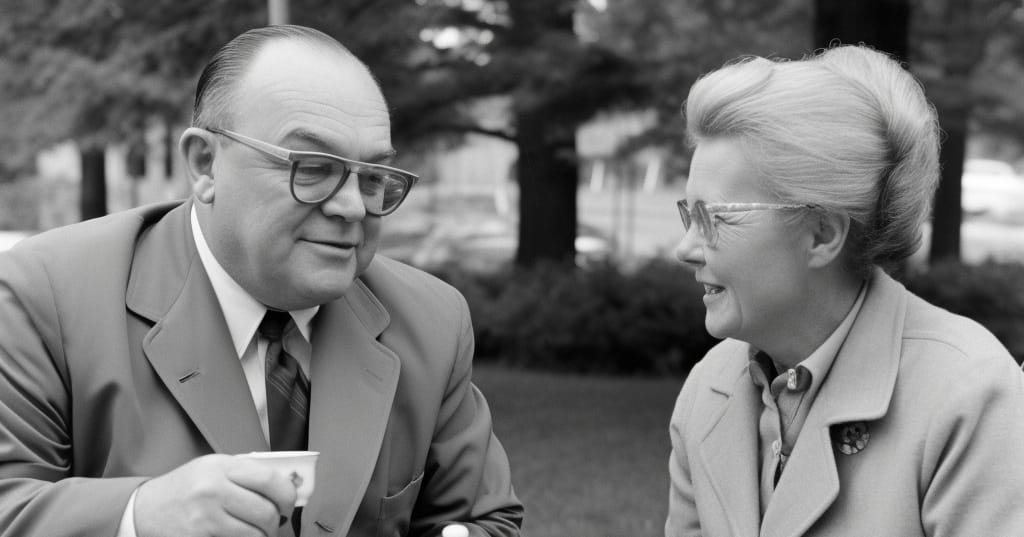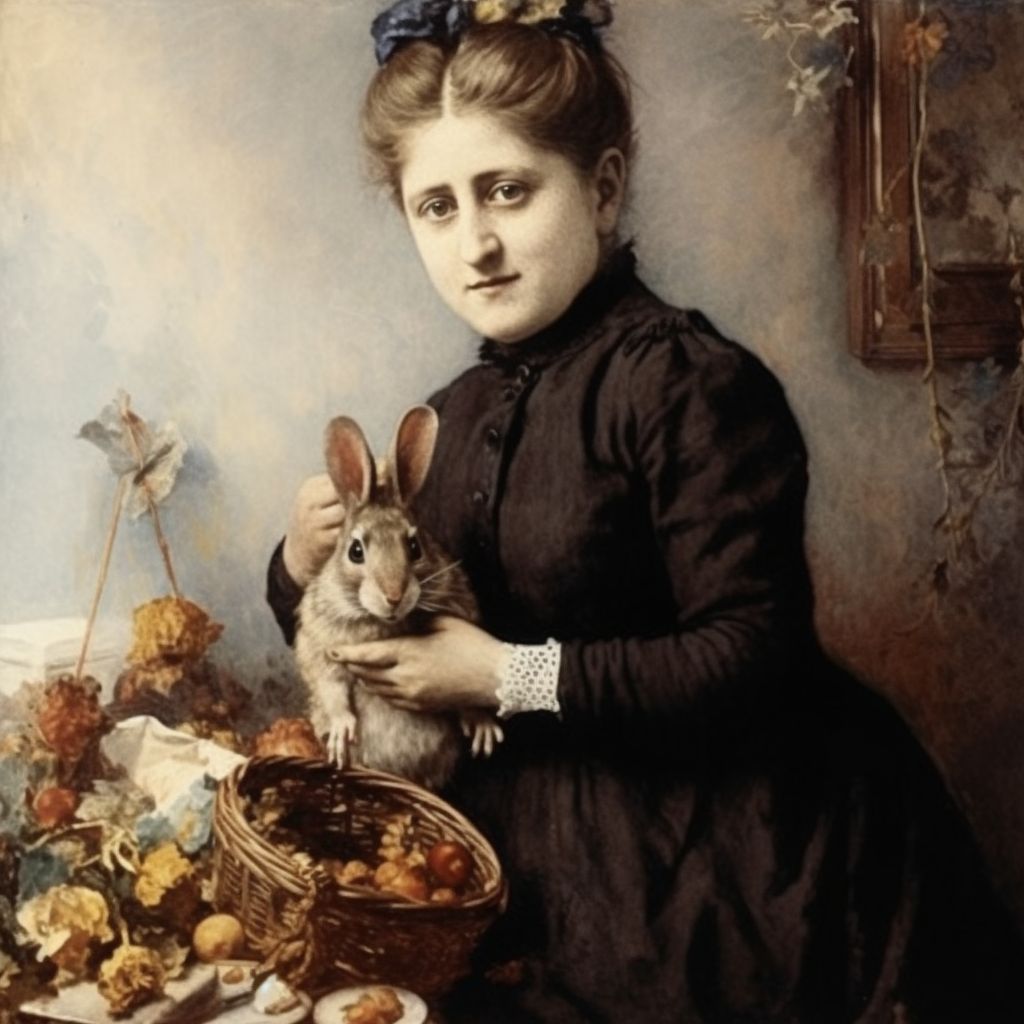- The Leader's Edge Newsletter
- Posts
- Backup To Go Forward
Backup To Go Forward
Cracks Ahead? Glide Forward Anyway

This week, let’s skate on thin ice, and learn how great leaders get ready for cracks underfoot. How do they end up better off after they’re upended? We might find it helps to know a Zamboni driver.
Table of Contents
THE ULLMEN INSIGHT

Entrepreneur Chris Guillebeau said, “If Plan A fails, remember you have 25 letters left.”
Before you need to quit, why not generate a quick list of inventive, motivating, path-expanding options?
Impending failure casts shadows that cloud the mind and hide possibilities. Failure, if it comes, is bad enough. Don’t let it win too soon!
The best leaders find alternatives, and alternatives to alternatives.
Be a leader who inspires possibilities, even though failure is one of them. It always is! So what? Don’t let it steal more mental & emotional space than it deserves.
Today’s scorecard isn’t tomorrow’s story.
In leadership life, unexpected challenges can spoil our plans, so plan to adapt, and plan to enjoy it.
The Airbnb founders did it early-on, when their business was in trouble. Their double backup was Plan “O.”
It was election season, and to keep their venture going, they cleverly created & sold presidential candidate breakfast cereals: “Cap’N McCains” & “Obama O’s.”
Even if Airbnb tanked, they gained inventive experience, and a helluva story. They found a worthy way to go forward, or to go out in style.
In the National Hockey League, if a goalie and backup goalie both get injured, there’s always someone in the stands ready like a superhero to change from plainclothes into goalie-gear and play for either team.
It’s rare, but leaders are ready for rare.
Call it Plan Z -- for Zamboni -- because one time, on a moment’s notice, the Zamboni driver strapped on the pads, stopped 8 shots, and saved the game.
Don’t let losing win!
From Plan A to O to Z, leaders spell success with every letter in the alphabet.
That’s the Insight: Be a Multi-Letter Leader.
THE ULLMEN TRIO
John holds an imagined conversation on our theme with this week’s guests, Scotty Bowman and Beatrix Potter.

Left: Scotty Bowman (1933–2024) – NHL’s most successful coach with 9 Stanley Cups. Right: Beatrix Potter (1866–1943) – Peter Rabbit author, pioneering self-publisher.
 | John Ullmen, host |
John Ullmen:
Welcome. So let’s start with this: how important is it to you as leaders to anticipate and adapt to challenges and potential failure? And how do you create successful alternatives?
Scotty Bowman: You know, John, the thing about sports — and life, really — is that nothing ever goes exactly as planned. I used to say, "Coaching is preparation multiplied by adaptation." Because if you’re inflexible when chaos inevitably strikes, you’ll lose. One moment that stands out to me, a real pressure cooker, was during the 1997 Stanley Cup Finals with the Detroit Red Wings. We were going into Game 4 against Philly – our playbook was set. But then, in the second period, they started absolutely shutting down our expected power plays. Chris Chelios got caught up in a poor rotation, our forwards were hitting a physical wall.
Now, I could’ve panicked and started yelling, but I got quiet. I just told myself, “Adapt the play or lose.” So, during the intermission, I pulled Steve Yzerman aside and asked him straight up, “Stevie, what are you seeing out there?” That moment of humility – trusting a crucial player’s perspective – that's when I saw we needed to run puck possession along the left boards instead of our planned center penetration. Within minutes of the puck drop in the third, it worked. We broke through, got a key goal, and clinched the series.
What that taught me – and why it means so much – is that leaders can’t fear adapting, especially in high-stakes moments. It's why I learned to simplify under pressure. If your team senses you’ve got positive, calm control, that you can adjust, they’ll follow you anywhere. You don’t control the chaos; you pivot within it. It’s about staying sharp, upbeat, and making sure everyone believes they can still win, no matter what gets thrown at them. Players feed off that energy.
Beatrix Potter: Scotty, I absolutely loved what you said about getting quiet and trusting your team’s insight. It resonates so deeply with me, though my “team” was often more furry or feathered! My experiences as a naturalist and author might seem worlds away from coaching the Red Wings, but this principle of adapting under pressure, that's truly universal.
You know, by the time I published The Tale of Peter Rabbit, my manuscript had been dismissed by six publishers, and at that point, I could have simply given up. Instead, I thought, “How can I adapt?” So, I decided to self-publish. I personally oversaw the printing of 250 copies, hand-delivering them to booksellers and even taking them to children whose parents I knew. I can still feel the weight of those little books, and the nervous hope as I handed them out.
What’s funny is that adapting then wasn’t just about getting the book into readers’ hands — it also changed how I told stories afterward. Because I was directly observing children’s reactions, I learned to weave in little cliffhangers, suspenseful moments, and soft resolutions. Those observations drove the success of future books.
What all of this – the rejections, the self-publishing hustle – taught me about leadership is that setbacks aren't failures unless you stop moving. Adaptation is less about a flashy comeback and more about persistence coated in creativity. When you pour yourself into positive determination, others feel it, whether they’re readers or colleagues or, as in Scotty’s case, players. It's like planting seeds, even in rocky soil, and then watching them grow, sometimes in unexpected and beautiful ways.
John: I love knowing that about you - that you hand delivered books to children. That’s commitment! It makes me wonder, as leaders, how can we develop the ability to create viable alternatives and change course while staying upbeat and determined?
Beatrix Potter: That’s a great question, I believe a key element is cultivating a deep sense of…
 | You can read the FULL interview in detail, with more questions and fascinating answers from each week's Trio guests! Coming soon, we'll offer Premium Membership in the Ullmen Leadership Academy to access the full interviews and much more. We're enthused to provide you more levels of access, to meet what works best for you. Stay tuned! |
THE TRIO TAKEAWAYS
 | Tap the “What do you see, Stevie?” trick for game-changing insight. Humble yourself and trust your team’s on-the-ground perspective to unlock winning pivots. In the 1997 Stanley Cup Finals, Game 4 against Philly, Scotty Bowman saw his Detroit Red Wings’ power plays collapse. Chris Chelios was tangled in a bad rotation, forwards were gassed, and the playbook was failing. Instead of barking orders, he pulled captain Steve Yzerman aside during the intermission and asked, “Stevie, what are you seeing out there?” Yzerman noted the Flyers’ aggressive left-side pressure, prompting Scotty to shift to puck possession along the left boards—a move that scored a crucial third-period goal and sealed the series. Leaders, don’t just dictate! Ask your crew what they’re spotting, then act on it. |
Master the “Intermission rethink” to stay cool and conquer chaos. Simplify your approach under pressure and lead with calm, upbeat control. During that same 1997 Finals game, with Philly dominating the second period, shutting down power plays and outmuscling Detroit, Scotty didn’t yell or flail. He got quiet, reassessed, and in the intermission simplified the plan: ditch center-ice attacks for left-board possession. By the third period’s puck drop, his steady vibe had the team executing flawlessly, clinching a 2-0 win. When the heat’s on, strip your strategy to its core, project positive confidence, and watch your team rally behind you. |  |
Use “250 Rabbits” to dodge rejection and soar. Bypass roadblocks by taking bold, self-driven action. Beatrix Potter faced six publisher rejections for The Tale of Peter Rabbit in 1901, each “no” a gut punch to her dream. Undeterred, she scraped together funds, printed 250 black-and-white copies herself, and personally hauled them to London booksellers and friends’ kids, her hands trembling as she handed over each tiny book. That hustle paid off when Frederick Warne & Co. later picked it up, launching a legacy. When you’re stalled, don’t sulk, launch your own path with relentless grit. | Weave the “Cliffhanger tweak” to keep winning with feedback. Observe your audience and adjust dynamically for bigger impact. After self-publishing, Beatrix watched kids flip through her books—some yawned at slow bits, others lit up at tense moments. She adapted, adding suspense (Peter nearly nabbed by Mr. McGregor) and gentle endings (safe in the burrow), refining her 1902 edition and fueling 25+ bestselling sequels. Get eyes on your work, note what clicks, and tweak it live to keep your crowd hooked. |
Rehearse the “C, D, E playbook” to outsmart any curveball. Prep multiple backup plans so you’re never blindsided. In the 1973 Stanley Cup Final, Game 1, Scotty’s Montreal Canadiens were torched 8-4 by Chicago’s Bobby Hull and Stan Mikita. Defenders like Guy Lapointe floundered as pucks flew past Ken Dryden. Up until 3 AM reviewing tape in his hotel, Scotty saw they’d played into Chicago’s fast, open style. For Game 2, he drilled Plans C, D, and E: Tight, physical neutral-zone clogging. They won the game 4-1, and won the Cup. Map out a stack of “what-ifs” and practice them, so you’re always three steps ahead. |  |
Here are more titles of the takeaways I pulled from the extended conversation. I will make the full explanations of each one, and how to apply them, available separately…
Use “250 Rabbits” to dodge rejection and soar.
Weave the “Cliffhanger tweak” to keep winning with feedback.
Rehearse the “C, D, E playbook” to outsmart any curveball.
Flip the “Offense-to-defense 180” for a fearless overhaul.
Redirect the “Fungi-to-Peter” pivot to turn pain into triumph.
Spark the “Highlight reel jolt” to reignite unbeatable spirit.
Fuel the “Lake District love” to fight through any storm.
Probe the “Shepherd chat” to lead with curious connection.
Study the “Islanders’ trap” to turn rivals into mentors.
Dream the “Post-storm sketches” in solitude for genius leaps.
Drill the “Two-minute drill” to make agility automatic.
Embrace the “Sheep scab surprise” to innovate in uncertainty.
Evolve the “Nine-Cup study” to stay forever sharp.
Surrender the “Flashy Sabres ego” for collective wins.
Spin the “Jemima tale” to rally with storytelling magic.
Stock the “Puppa backup” to build an unstoppable bench.
Recall the “Old farm journals” for timeless pivots.
Listen for “Skate Sharpener’s Tips” from quiet corners.
Blend the “Fungi-to-farm” mix for boundary-busting wins.
Final Thought:
Adaptability is an active practice, one that asks you to observe, learn, and pivot with both determination and optimism. Whether you’re shaking up a hockey strategy or finding new ways to protect a beloved landscape, staying curious and resilient ensures you never get stuck in just one way of doing things. Give yourself permission to explore backup plans, experiment under pressure, and gather wisdom from every corner of your world. With that approach, each challenge becomes not a roadblock, but a doorway to a stronger, smarter future.
THE TRIPLE PLAY

Great leaders grow their understanding of people by exploring similarities, differences, and possibilities. Let’s practice this skill each week, with inspiration from our Trio guests.
1. COMPARE: Something they share.
Devotion to Lands and Places:
Bowman is famously tied to areas where hockey thrives, like Montreal, Detroit, and Buffalo, and has espoused deep love for hockey’s heritage and tradition.
Potter was deeply passionate about preserving land in England’s Lake District, becoming a conservationist later in life. Both had emotional connections to the places they called home or “home rink.”
2. CONTRAST: Something they see differently.
Legacy Building:
Bowman built his legacy through championships, coaching records, and developing winning teams and star players in a very public arena.
Potter created a quieter legacy through her books, conservation work, and scientific contributions (particularly in mycology), focusing on inspiring generations of children rather than achieving public accolades during her lifetime.
3. CREATE: Something they might innovate.
To help us exercise our own leadership creativity, here we imagine the guests were alive today and joined forces to create something new.
I’ll share one of my favorites next week, and I welcome yours in the meantime!
Last week our guests were Yogi Berra and Charlie Chaplain , and this could be one of theirs:
"Life's a Pitch": A comedy film where Yogi plays a coach and Charlie plays a bumbling baseball player, teaching life lessons through hilarious mishaps.

Our mission is to make things better one leader at a time.
If you find enjoyable value in this week's newsletter, please send it to a friend or colleague who might like it too.
Thanks for helping other growing leaders grow too!
Apply some takeaways this week!
And let me know:
In what ways did you find this week’s newsletter helpful or informative?
Do you have any personal stories that illustrate the takeaways?
Let's keep learning together - ask any leadership questions for future newsletters!
Send your emails directly to me at [email protected], or simply reply to this email.
Until next week…
Let’s make things better,
John